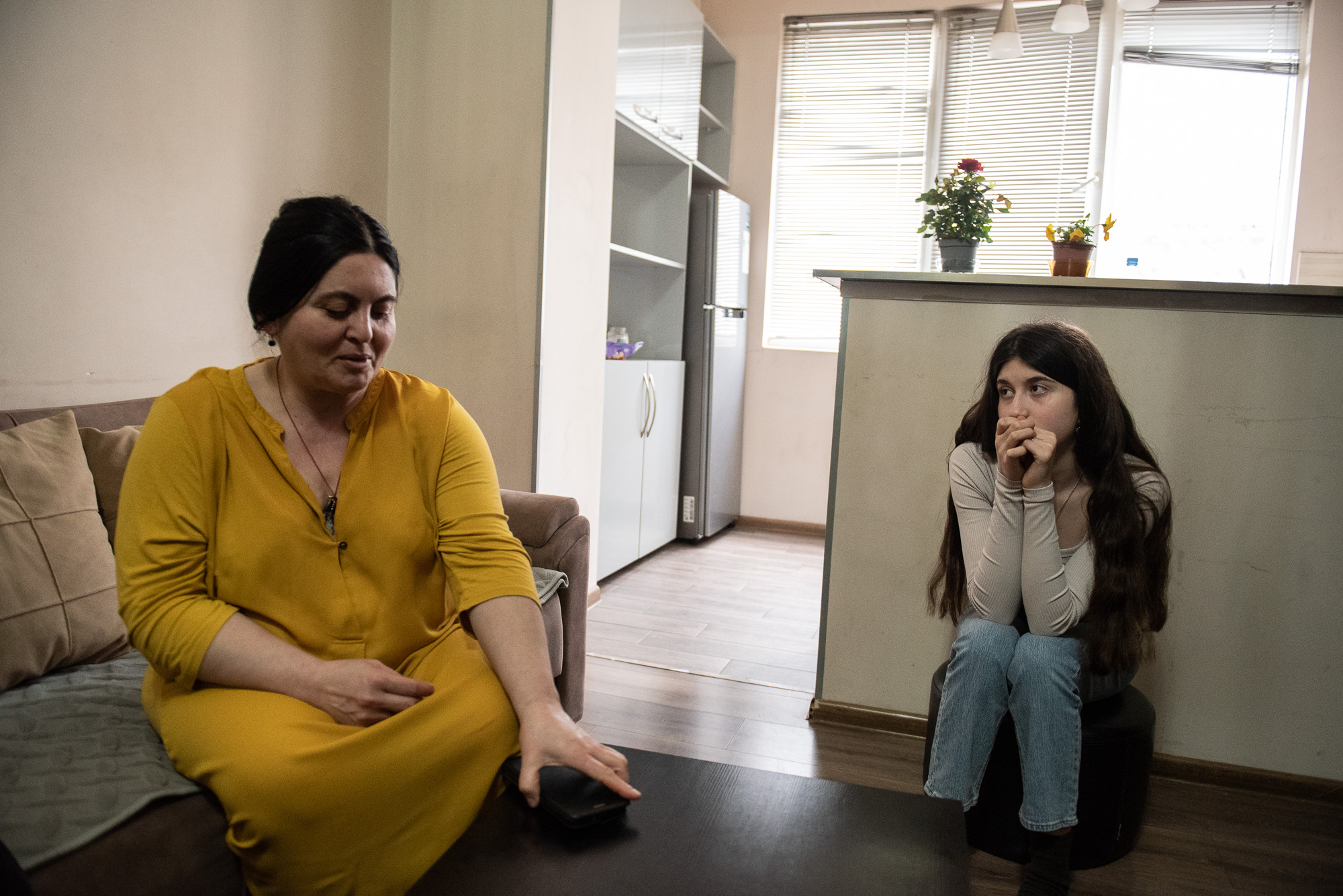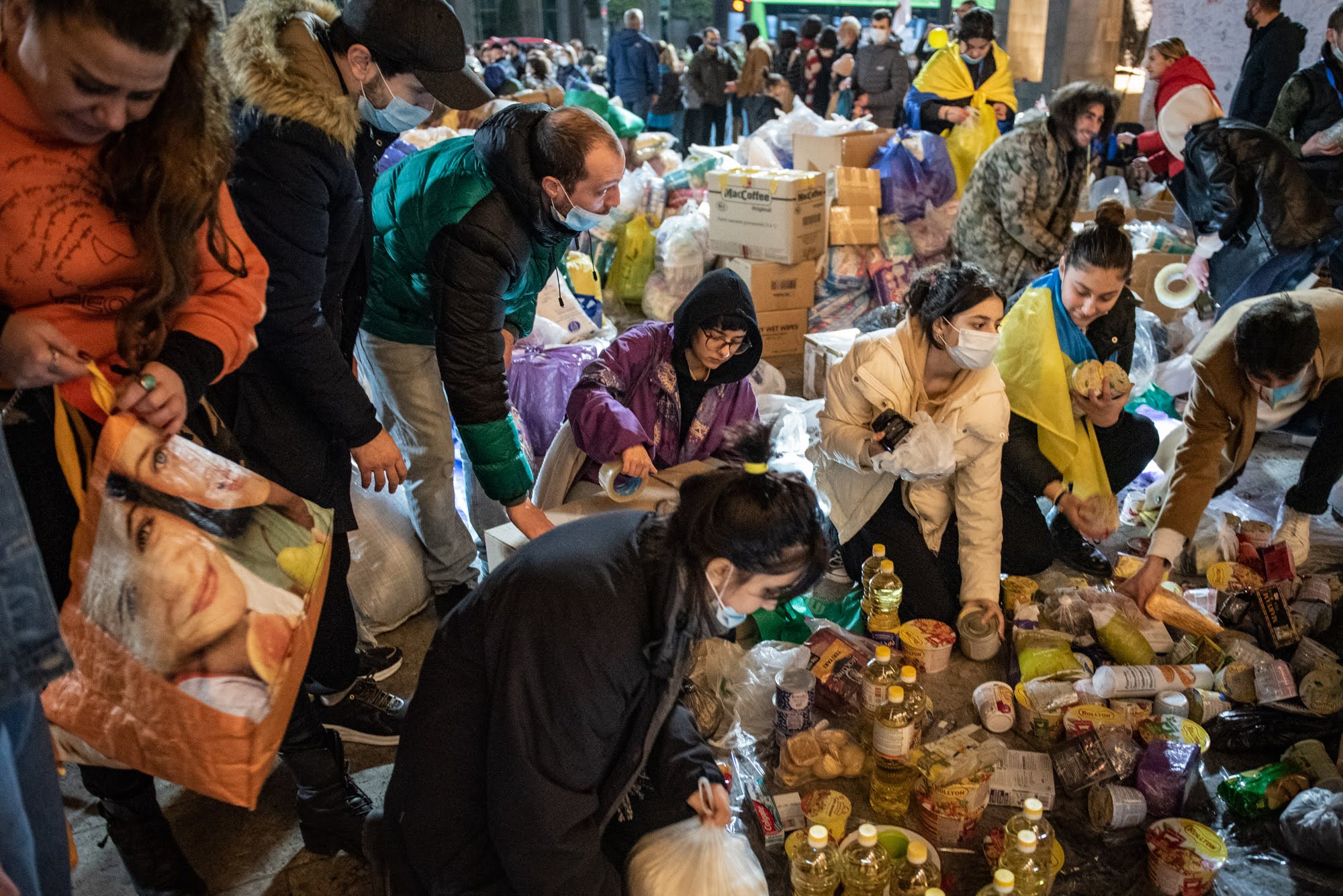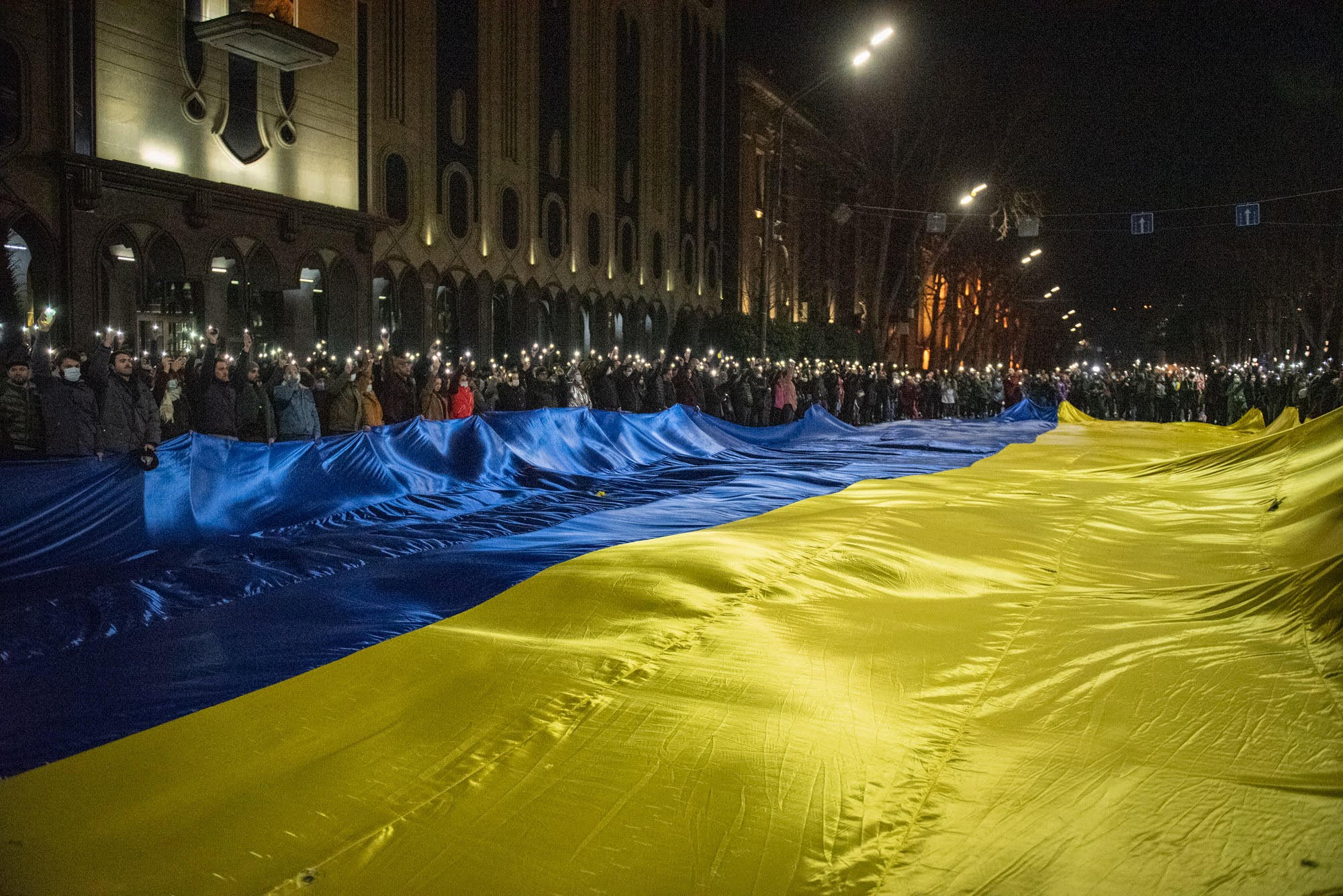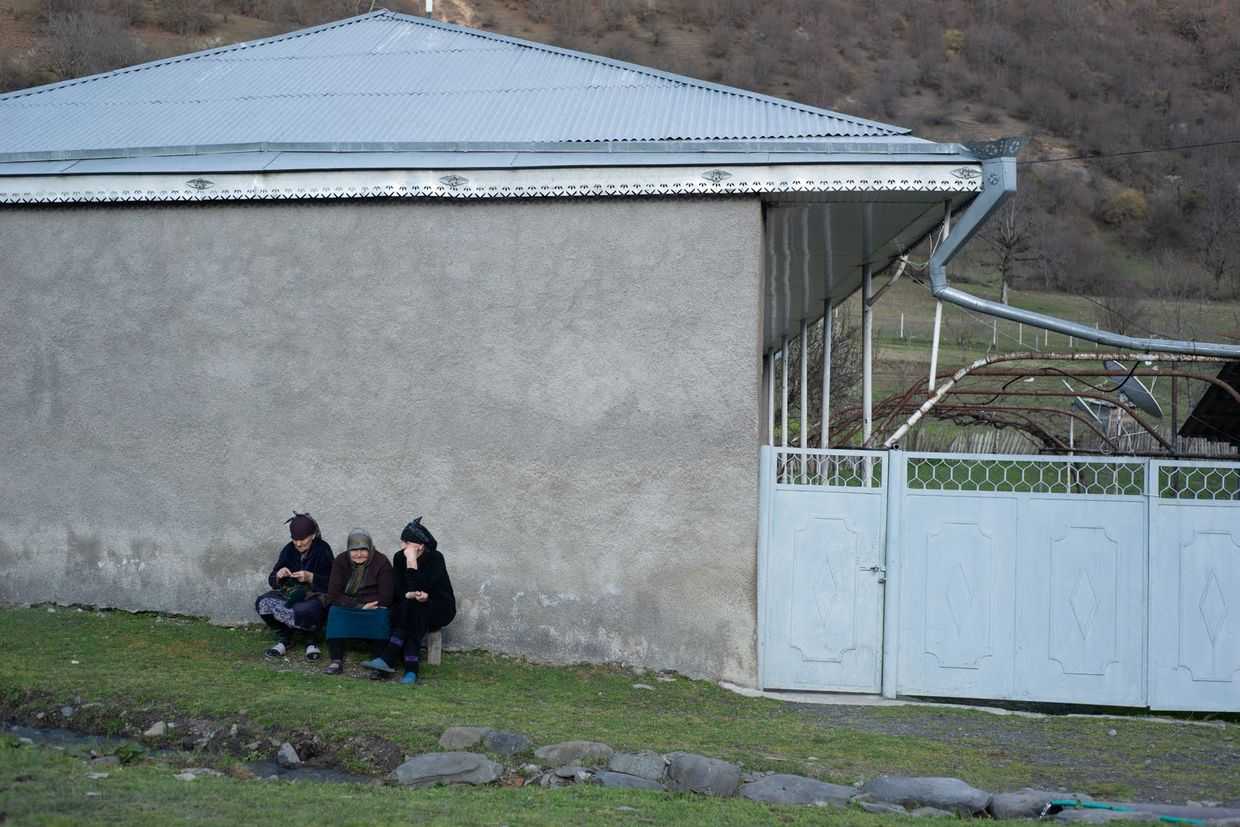
The kindness of strangers helped spirit Zhanna Baghatelia and her daughters across borders to Georgia, and kept them safe and fed as the family fled Putin’s war on Ukraine.
On the morning of 24 February, Zhanna Baghatelia was startled by the sound of a powerful explosion. That’s when she knew the war had begun. The 47-year-old Georgian citizen is a resident of Odesa and has lived in Ukraine for the last 15 years.
She told OC Media she had anticipated the war and had started looking for avenues of evacuation, several days before the invasion.
‘I counted on the fact that we could get out from Odesa by sea or air, but on 25 February, when we finally decided to leave, both the port and the airport were closed’, she recalled.
For a couple of days, Zhanna stayed put. Then, without warning, she received news of an offer from her daughter’s colleague. They offered a car to evacuate Zhanna and her two daughters to Romania by way of Moldova. They had only one hour to pack their bags.

‘I agreed, but despite this, my soul is still torn’, Zhanna said. She had left Odesa with two daughters, but still has two more who are married and have chosen to remain in Ukraine with their families. ‘I am very scared for them, but my children themselves persuaded me to leave’, she lamented.
‘One daughter lives with her family in the centre of Odesa, and the second one lives in Luhansk, they do not leave the house’, Zhanna said. ‘But my daughter in Luhansk could no longer sit at home doing nothing. She has a medical education and she really wants to help people, she said that at least she can help the wounded people if necessary.’
The drive to the Moldovan border was brisk — there was no one on the road but them. ‘There was a terrible, oppressive emptiness all the way’, Zhanna recalled.
In a foreign land
Within a day of crossing the Moldovan border, Zhanna and her children found themselves in Romania — they did not receive a warm welcome. One of her daughters is a minor and does not have a passport, only a document certifying the right to leave Ukraine that she acquired at the Georgian consulate in Odesa when the war began, That document was rejected by Romania’s border authorities.
They told Zhanna her daughter could only stay in the country for 24 hours, lest she risk deportation.
The situation was made worse by the fact that they had no phone, no access to the internet, no money except that which they saved for plane tickets to Georgia, and no one in the family spoke Romanian or English.
They were saved by the kindness of strangers.
‘By chance, my older daughter met a young Moldovan guy who spoke Russian. He helped us a lot, he bought us a phone and helped us get around’, Zhanna said. The young man brought the family to Bucharest, where they were able to secure an early morning ride to the airport.
The taxi driver was also eager to help them by buying them breakfast and proper luggage for their belongings — which had been hurriedly stuffed into plastic bags.
But at the airport, the family was met with another seemingly insurmountable hurdle. Prices for tickets to Georgia had spiked and grown more expensive than the amount of cash the family had brought with them.
Thankfully, a nearby Russian-speaking couple heard the family’s predicament and offered to buy them the tickets to Tbilisi. And when Zhanna offered the money they had with them at least as a partial payment, they refused.
‘I will pay for the tickets myself. When you fly to Georgia, then you will think about this money, but now put these thoughts out of your head’, she remembered the man telling her.
According to the UN, 2 million people have fled the violence in Ukraine and ‘countless more’ have been displaced within the country itself, and over 406 civilians have been killed.
Georgia rallies for Ukraine
While Zhanna was fleeing to the country of her birth, Georgia was mobilising to help Ukraine.
Regular citizens organised homestays for people displaced by the invasion, as well for those Ukrainians stuck in Georgia. Thousands of others donated food, medicine, clothing, and cash to help the Ukrainian cause.
Tata Tavdishvili is not currently living in Georgia, but when she heard that the war had started in Ukraine, she, her father and sister, who live in Tbilisi, decided to take Ukrainian people into their family home.


Three Ukrainians, who initially came to Georgia for a brief holiday, now live in the house with Tata’s father.
‘It is not only a battle for the Ukrainians, their victory is also important for our country’, Tata told OC Media. ‘Our care for their citizens is one of the best forms of support we can give them right now.’
Levan Adzishvili, who also opened his doors to a Ukrainian citizen stuck in Georgia said he did it because he ‘wanted to do something for these people as a sign of solidarity’.
When Zhanna Baghatelia finally arrived in Tbilisi on 28 February, she and her daughters were given shelter by a family who wanted to help refugees from Ukraine. The family not only housed and fed them, they gave them new clothes and other necessities.
Today, Zhanna and her daughters live in an apartment paid for by her oldest daughter’s employers. The Ukrainian embassy regularly checks in with her to make sure she is okay — but she said she feels supported in Georgia.
As for what her final words about her ordeal are, she was blunt.
‘I have only one request to everyone — if you can help people from Ukraine, please do it so that they feel they are not alone!’







